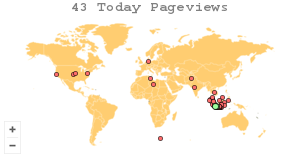NILAI EDUKATIF DALAM SURAT AL-FATIHAH DAN PENGARUHNYA TERHADAP KARAKTER
(Kajian Tafsir Tarbawi Surat Al-Fatihah)
DOI:
https://doi.org/10.47498/bashair.v1i1.609Keywords:
Al-Fatihah, Nilai, Karakte, Tauhid, ImanAbstract
This article examines the value of normative educatives in Surat Al-Fatihah and its effect on character. This study includes the category of literature research. The study method used is descriptive analytical. The primary data in this study is surat Al-Fatihah. While the secondary data as a support in this article comes from references related to the theme of discussion, especially the books of interpretation. The results of this study show that value is very important to instill in a person, because value is a reference and confidence in determining attitudes. Therefore, values greatly affect a person's character and behavior. Surat Al-Fatihah contains normative values in three aspects; (1) the value of i'tiqadiyah, (2) the value of Khuluqiyah, and (3) the value of amaliah (Sharia). However, this paper is limited to the study only on the value of akidah education (i'tiqadiyah) only and its effect on character. The reason, the creed is the foundation that becomes the foundation of sharia and morals. Shariah is the implementation of the creed. While morals are a reflection of the creed and sharia. So, the creed is a worldview or basic belief that becomes the main value in a person's life. In surat Al-Fatihah contains several values of the creed, namely faith and tawhid. And in surat Al-fatihah contains three types of tawhid in full, namely rububiyyah, uluhiyyah, and asmâ' wa shifat.
References
Al-Fauzan, S. (t.t). Aqidah Tauhid. Shamela Books Lybrary-AppEdtech: Maktabah Shamela.
Al-Maqdisi, I. Q. (2019). Mukhtasar Minhajil Qasidin. Riyadh: Maktabah darul hijaz.
Al-Qurtubi. (1422). Al-Jamik li Ahkami Qur’an (III ed.). Beirut: Dar Kutub Islamiyah.
al-Syaibany, A. b. (2001). Musnad al-Imam Ahmad. Beirut: Muassasah al-Risalah.
Arabia, K. A. (1421). Ushul Iman fi Dhau Kitab wa Sunnah. Shamela Books Lybrary-AppEdtech: Maktabah Shamela.
Asy-Syaukani, M. b. (1422). Fath Al-Qadir (I ed.). Riyadh: Maktabah Rusdy.
Baz, A. A. (1420). Majmu Fatawa. Shamela Books Lybrary-AppEdtech: Maktabah Shamela.
Harahap, N. (2014). Penelitian Kepustakaan. Jurnal Iqra’ Vol. 08, No. 01, 68-74.
Harahap, N. (2014). Penelitian Kepustakaan. Jurnal Iqra’, 8(1), 68.
J.R, S. A. (2014). Pembelajaran Nilai-Karakter: Konstruktivisme dan VCT Sebagai Inovasi Pendekatan Pembelajaran Afektif. Depok: PT. Rajagrafindo Persada.
Khallaf, A. W. (1971). Ilmu Ushul Al-Fiqh. Lebanon: Dar Al-Kotob Al-Ilmiyah.
Khatibah. (2011). Penelitian Kepustakaan. Jurnal Iqra’ Vol.05, no.01, 36-39.
Lickona, T. (2013). Character Matters: How to Help Our Children Develop Good Judgment, Integrity, and Other Esensial Virtues. (J. A. Zien, Trans.) Jakarta: Bumi Aksara.
Lickona, T. (2015). Educating For Character: How Our Schools Can teach Respect and Responsibility. Jakarta: Bumi Aksara.
Marzuki. (2015). Pendidikan Karakter Islam. Jakarta: Amzah.
Mujib, A. d. (2006). Ilmu Pendidikan Islam. Jakarta: Kencana.
Mukodi. (2011). Nilai-nilai Pendidikan dalam Surat Luqman. Jurnal Walisongo, 19(2), 429-450.
Mulyana, R. (2011). Mengartikulasi Pendidikan Nilai. Bandung: Alfabeta.
Mulyana, R. (2011). Mengatrikulasi Pendidikan Nilai. Bandung: Alfabeta.
Nashir, H. (2013). Pendidikan Karakter Berbasis Agama dan Budaya. Yogyakarta: Multi Presindo.
Nazir, M. (1985). Metode Penelitian. Jakarta: Ghalia Indonesia.
Nazir, M. (1985). Metode Penelitian. Jakarta: Ghalia Indonesia.
Shihab, M. Q. (1994). Membumikan Alquran. Bandung : Penerbit Mizan.
Suriasumantri, J. (1998). Penelitian Ilmiah, Kefilsafatan, dan Keagamaan: Mencari Paradigma Kebersamaan. In D. &. Ridwan. Tradisi Baru Penelitian Agama Islam: Tinjauan Antardisiplin Ilmu (p. 41). Bandung: Nuansa.
Tafsir, A. (2013). Filsafat ilmu. . Remaja Rosdakarya.: Bandung: .
Downloads
Published
Issue
Section
License
Authors who publish articles in Basha'ir: Jurnal Studi Al-Qur'an & Tafsir agree to the following conditions:
- The author retains copyright and grants the Basha'ir Journal the right from the first publication with the work simultaneously licensed under a Creative Commons Attribution-ShareAlike 4.0 International (CC BY-SA 4.0) license that allows others to make changes, adjust and build on the work with recognition of the author's work and initial publication in the Journal.
- Authors are allowed to copy and redistribute published versions of works in journals (for example, posting them to institutional repositories or publishing them in a book), with recognition of their initial publication in Basha'ir: Jurnal Studi Al-Qur'an & Tafsir.
- Authors are allowed and encouraged to post their work online (for example, in institutional repositories or on their websites) before and during the submission process, as it can lead to productive exchanges, and increase citations of published works






